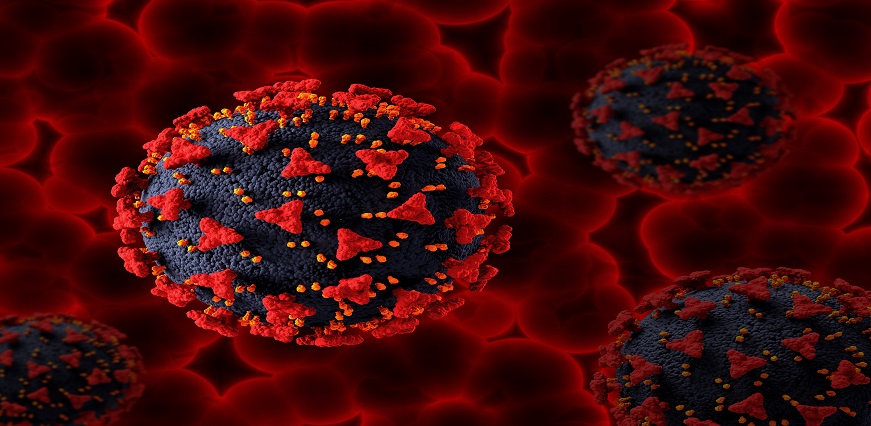





No lab centers are available in this city

Max Lab
Mar 08, 2022
The Delta and Delta Plus variants of COVID-19 have been classified as “Variants of Concern” by the World Health Organisation (WHO) because of their increased ability to cause a severe form of the disease and their increased transmissibility, as compared to earlier variants. The Delta variant of COVID-19 was first identified in late 2020 in India and named on 31st May 2021. On the other hand, the Delta Plus variant is a subtype of the Delta variant of COVID-19 and has an additional mutation in the spike protein. While the Delta plus variant is supposed to be slightly more transmissible as compared to the Delta variant, the number of Delta plus variant cases in India and across the world have remained comparatively low. The Delta and Delta plus variants have symptoms that may vary from each other, but can lead to several complications, especially in unvaccinated individuals. Here is all you need to know about the Delta and Delta Plus variant of COVID-19.
Viruses need host cells to reproduce and transmit their genetic material to other cells to make more of the virus in order to spread the disease. The thing that makes the Delta and Delta Plus variants of COVID-19 more contagious than previous variants is their spike protein. The word “Corona” in Latin means “Crown”, which alludes to the observed shape of the virus. The crown's spikes get attached to a person’s cells and then produce more of the virus to infect the human body. The Delta variant of COVID-19 has spike protein mutations that make it transmit easily and infect human cells. On the other hand, the Delta Plus variant has the presence of an additional mutation in the virus’s spike protein that can infect healthy cells. The symptoms of the Delta variant of COVID-19 and those of the Delta Plus variant as observed in patients are slightly different from those shown by the previous COVID-19 variants. People who have received all doses of the COVID-19 vaccine may get milder Delta or Delta Plus variant symptoms as compared to unvaccinated individuals.
The symptoms of the Delta variant of COVID-19 slightly differ from those of the previous variants of COVID-19. However, physicians treating people affected by the COVID-19 Delta variant see symptoms affecting people quicker, especially among younger children. Fully vaccinated people on the other hand are generally either asymptomatic or have very mild symptoms if they do get infected by the Delta variant of COVID-19. Their symptoms more likely resemble those of a common cold, fever, or headache, however, with the significant addition of the loss of smell.
Some of the common symptoms of the Delta variant of COVID-19 include:
Other symptoms may include chills, muscle or body pain, diarrhea, nausea, congestion, abdominal pain, fatigue, etc. If the symptoms seem to worsen or if the patient experiences the following, medical care must be sought immediately:
The symptoms of the Delta Plus variant are slightly different from the original strain of the virus. However, loss of smell and taste, fever, cold and cough are some of the common symptoms of the COVID-19 variant.
In case of a severe infection caused by the Delta Plus variant, symptoms may include:
When it comes to the Delta variant, COVID-19 vaccines have proven to be quite effective. Two doses of the WHO-approved vaccines are sufficient for preventing severe infection and hospitalisation. The COVID-19 vaccine protects most people from getting severely infected by the virus. Even after vaccination, people who get infected by the virus are likely to have milder infections. Plus, any vaccine which is effective against the Delta variant is also going to protect you against the Delta Plus variant. So, regardless of the COVID-19 vaccine you choose, it is crucial to ensure complete vaccination at the soonest in order to protect yourself against the Delta and Delta plus variants of COVID-19.
There are several safety precautions and steps that an individual should take in order to minimise their risk of getting infected by COVID-19.
As the booster doses of the COVID-19 vaccine are being developed, it is extremely important, even for fully vaccinated individuals, to ensure proper safety and precautions to stay protected against the virus.












Sign up takes less than 60 secs and gives you access to your offers, orders and lab tests.
Looks like you are not registered with us. Please Sign up to proceed
OTP will be sent to this number by SMS
We have successfully received your details. One of the agents will call you back soon.
 To reach our help desk call 9213188888
To reach our help desk call 9213188888
No Lab Centers are available in this city
Looks like you are not registered with us. Please Sign up to proceed
OTP will be sent to this number by SMS
Not Registered Yet? Signup now.Looks like you are not registered with us. Please Sign up to proceed





 7982100200
7982100200.png)
Comments